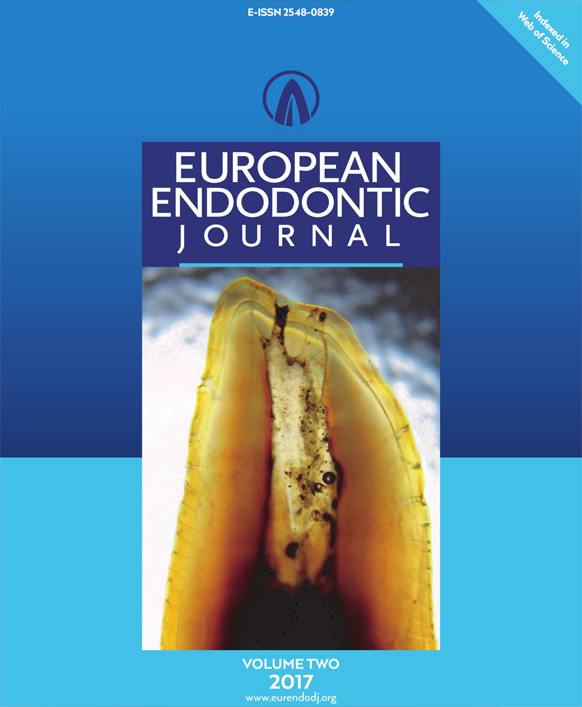
European Endodontic Journal
Yazarlar: Mohammad Ali Saghiri, Hamed Kazerani, Steven Morgano, James Gutman
Konular:-
DOI:10.14744/eej.2020.84803
Anahtar Kelimeler: Mechanical activation,Mineral trioxide aggregate,Particle size analysis,Setting time,Sol-gel,Surface area
Özet: Initial setting time is one of the most important properties of calcium silicate cements (CSCs) such as white mineral trioxide aggregate (WMTA). This study aimed to evaluate the effect of two methods used to reduce the particle size of WMTA, mechanical activation and chemical synthesis. Methods: WMTA without bismuth oxide (WMTA-B) was provided and divided into four groups (n=5) including: WMTA-B, WMTA-B+10 min milling, WMTA-B+30 min milling, and sol-gel. In groups 2 and 3, the milling was performed by using tungsten carbide balls in a ratio 1: 15 (w/w) and a vibration frequency of 30 Hz together with absolute ethanol. For the fourth group, polyethylene glycol (PEG), calcium acetate (Ca(C2H3O2)2), SiO2, and aluminum oxide (Al2O3) were used for the sol-gel process. After preparation, sample powders were mixed with distilled water and placed in cylindrical molds, covered with water-moistened gauze, and incubated at 37°C for 24 hours. The Vicat needle test analyzed the initial setting time. Data were analyzed by ANOVA and Tukey tests at a significance level of P<0.05. The correlation between particle size and setting time was determined. Results: Initial setting time of the sol-gel and WMTA-B+30 min milling was significantly lower than in the other two groups (P<0.05). A significant correlation was noticed between particle size and initial setting time (P<0.05). Conclusion: Sol-gel process introduces a promising alternative strategy for the reduction of initial setting time of CSC materials. While both methods increased surface area, mechanical activation was not as successful in reducing surface area and initial setting time as effectively as the sol-gel process.